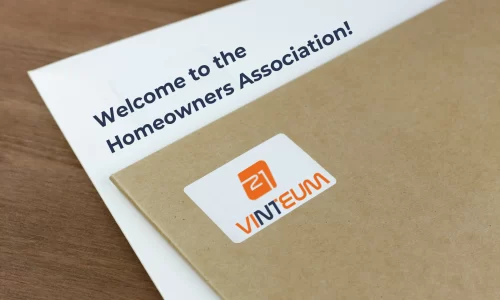Having a good relationship between the board and homeowners is fundamental for good performance in your HOA. To maintain uniform and equitable standards, it may be interesting to have an authority, who would be responsible for responding to demands and maintaining order within the community.
However, this relationship isn’t always easy: it’s necessary for all parties involved to have a good relationship and be able to work together in the best possible way.
With that in mind, we saw the need to create an article to explain how groups work and what are the best strategies for improving relations between the board and homeowners.
Maintain transparency
One of the most important details to improve the relationship between boards and homeowners is to maintain transparency in communication and information.
Residents should always be aware of decisions made by the HOA board. This helps to improve the relationship between these two groups and create an environment of trust between the owners and the board.
There are situations, in fact, in which the board will have full authority to make some decisions, depending on the statute and governmental documentation. However, this doesn’t mean that homeowners should be in the dark: they need (and deserve) to know what’s going on.
A good way to maintain efficient communication between board and homeowners is to work with different strategies, such as:
- newsletters;
- emails;
- regular meetings.
In many cases, using an HOA communication tool can also be interesting, making this process even more transparent. It can help you stay in touch with residents and allows them to find the information they need quickly, and message the board if they need.
Understand what your responsibilities are
Despite not receiving a salary for their efforts, volunteers have great responsibilities and very important roles in the community.
The councils are formed precisely by people who want to act efficiently in the daily life of the community. You need to have time to dedicate themselves to their communities and who really want to make a difference.
As a volunteer, you need to identify what your responsibilities really are and fulfill all of them in the best possible way. Chores will not always be fun. There will be situations when you’ll need to deal with unwanted activities, but which are fundamental for the proper functioning of the HOA.
Learn to reach consensus – and be firm when needed
One of the most stressful situations between board and homeowners is when the board makes an unpopular decision, or that creates a negative response from residents. In these moments, the feeling that can remain between the two groups is that of a power prevailing over the other. In fact, even though the board has a certain authority, decisions can be made together. When they are not, both parties need to be well informed.
Some details can be exhausting. When there are rules to be followed within the HOA, such as standardizing gardens and house structure, the board must ensure that people can and do follow the rules. It is up to the board members to talk to residents to ensure that everyone is aware of what the rules are and is willing to follow them.
Board members need to be aware of the way that they communicate decisions made and pass on all relevant information to homeowners. The more direct, transparent, and frequent this communication is, the greater the chances of improving the relationship between board and homeowners in your HOA.
If you’d like help creating one place where everyone can communicate easily, then try Neighbors 14-day free trial.







